- Home
- Melody Carlson
Crystal Lies Page 2
Crystal Lies Read online
Page 2
And so I dash like a madwoman down the stairs, fumbling through my purse with shaking hands as I search for my keys. The adrenaline is already racing through my veins as I climb into my decrepit Ford Taurus, and I am praying that, despite the freezing temperature, it will start. I’ve long since quit missing the silver Range Rover I used to drive around this town. I am attempting to forget its luxurious heated leather seats and eight-slot CD player as well as all the other amenities. Really, it seems nothing more than a faded memory now or perhaps something I’ve imagined altogether. If only I can get this temperamental engine to cooperate with me today.
The Taurus finally turns over, and I am driving down the street with a cloud of black smoke trailing me. And now I begin to run all the possible scenarios through my head. Has Jacob been mugged and beaten by one of his “friends”? Or perhaps he has overdosed again and needs medical attention. Has he reached the end of his rope and attempted suicide? Who wouldn’t in his situation? Or maybe he’s simply in trouble with the law.
Finally I settle on the most positive possibility Maybe my son is at last willing to get help. Maybe today is the big day—the big turnaround I’ve been hoping and praying for, for nearly a year now. But, like I said, drugs are deceptive, and the users aren’t the only ones who get taken for a ride.
Six months earlier
“I will not go to Al-Anon,” Geoffrey informed me in no uncertain terms.
Jacob had been missing for several days by then, and racked with worry, I had desperately phoned an anonymous help line and sobbed out my greatest fears. Unfortunately, the phone counselor had been trained to give support to actual drug addicts, not distressed and slightly hysterical mothers.
“I’m sorry, ma’am,” said a young female voice. “But maybe you should try going to Al-Anon.”
“Al-Anon?” I echoed. “But I’m not an alcoholic.”
“It’s not for alcoholics,” the girl assured me. “It’s a support group for loved ones. Like people who are related to addicts or alcoholics, you know?”
“I know,” I said, although I really had no idea. Then she gave me the local phone number, and still feeling frantic and no longer caring who knew, I gave the number a call. Although I did manage to sound a bit more controlled on the second phone call.
“We meet at St. John’s Presbyterian Church on Thursdays at seven,” the man informed me.
“And this is for parents of teenagers who struggle with, uh…” I still had difficulty using the word addict back then. Addicts were criminals or homeless people or second-rate actors in a movie of the week. “Drug problems?” I finally finished.
“Yes. It’s basically a support group for family and friends. But we also have special guests who come and enlighten us regarding some of the problems that come with addiction’
“Thursday at seven?”
“Yes. And if you’re married, I encourage you to bring your husband along as well.”
“Oh, I don’t know…” Suddenly I was thankful I hadn’t given him my name yet. Stafford is a relatively small town. Oh, not so small that you couldn’t hide, but a lot of people knew the name of Geoffrey Harmon, city attorney.
“It can be very helpful for the afflicted person to have the full support of the entire family,” the man told me.
“I’m sure that’s true, but my husbands a busy man.”
“And you probably know that parenting a child with an addiction problem can be quite stressful on marriage relationships.”
“Yes, I know.”
“We also encourage siblings to attend. They have their own set of problems, you know.”
“Yes, I’m sure that’s true.” I felt like I was reciting the same line again and again, and all I wanted was to get off the phone. What if these people had caller ID? I thanked the kind man and hung up. My heart was racing, and I was breathing hard. Still, I felt he was probably right. Perhaps it would be better if the whole family showed their support for Jacob and his recovery by going to Al-Anon. Except I had no idea how I could possibly talk my husband into attending. And even though I waited until after dinner and after I felt certain he was feeling somewhat relaxed, it still blew up in my face.
“But the man I spoke with said it would help Jacob to have us both attend,” I tried after my first attempt failed. “He said Jacob needs the support of his entire family.”
“Jacob had the support of his entire family when he decided to become a junkie. It didn’t make a difference then, and it won’t make a difference now.”
“How can you know that?”
“Because, Glennis,”—he was using his placating tone with me now—“I know that the only one who can change an addict is the addict himself.”
“But that’s not what the Al-Anon man said.”
“Look, if you feel the need to go to a meeting like that, then just go. But don’t think you need to drag me into it with you.”
“But what if it could help—”
“Jacob needs to help himself.” Geoffrey picked up a folder of papers, his sign that this conversation was over.
So I went alone. And I must admit to feeling a bit foolish and self-conscious as I perched on a metal folding chair along with a bunch of complete strangers. Most of them turned out to be spouses or significant others. And most were there because of drinking problems, although one woman was there because her boyfriend was a cocaine addict. Even so, I did derive a small sense of comfort from hearing their hard-luck stories. But when my turn to share came up, I froze. Suddenly I was eight years old and being called upon to spell the word rhinoceros. I just couldn’t do it.
That’s when I realized I had no desire to spill my sorrows in front of total strangers, or anyone for that matter. And as I looked around at the faces that were watching me, intently waiting for me to say something, I knew that Geoffrey would call these people “losers.” And, despite my attempt to remain nonjudgmental, I suppose that was how I saw them too. I ended up saying very little and leaving early. Then, as if to spite my efforts at getting some much-needed help, I came home to discover Jacob sitting on the sofa in the family room, eating a bowl of Rocky Road ice cream and watching a rerun of The Simpsons. His hair was wet, from either a shower or a swim, and he looked tan and healthy and was just sitting there laughing at Homer Simpson’s stupidity and acting as if everything were perfectly normal. I suppose it was, for him.
“Where have you been?” I demanded as I threw my purse onto a chair.
“Sorry, Mom.” Jacob tossed me that old smile, the one that used to work when he wanted something simple like cookies hot from the oven or “just one more” video game before dinner.
“Do you know how worried I’ve been?”
“Yeah, Dad filled me in.” He rolled his eyes.
“You’ve already talked to Dad?”
He scowled. “No, as usual Dad talked to me. Like you could call it that. It was more of a sermon or lecture. We all know that he never listens to anyone.”
“Well, he was worried too.”
Jacob laughed in a cynical way “Yeah, you bet, Mom. Believe whatever you like.”
I sat down in the chair across from him now. “He is worried, Jake. We’re both worried. We know you have a… a problem. We know you need help.”
“I’m” fine. His eyes narrowed now. “I just need people to be a little more understanding is all. I’m going through some stuff. And I’m trying to sort it all out. I needed some time and space to just think about it.”
“But you’ve been gone since Friday.” I shook my head, forcing myself to remember exactly what had happened, even wondering why I’d been so upset and worried. One thing I knew by then was how my son had become an expert at changing the subject or throwing up smoke screens. “I’ve called your friends—”
“Who did you call?” he demanded.
I listed off a few kids who had been good friends before Jacob had started to change.
“They aren’t my friends,” Jacob said quickly.
�
�Well, those were the only numbers I knew to call.” I sighed. “You won’t even say who your friends are anymore. You hardly talk to us at all.”
“Because you’re always putting me through this kind of crap. It’s either a lecture or the Spanish Inquisition.” Then he cursed.
“Please, don’t use those kinds of words in this house.” I gave him my automatic response to his occasional use of unacceptable language.
“It’s just a stupid word, Mom.”
I took in a deep breath and closed my eyes. What had we just been talking about? Oh, yes, my missing son. “But this is the deal, Jacob. You’ve been gone since Friday.” I used my fingers to count. “That’s four days. And since today is Monday and you obviously missed school—”
“I did not miss school,” he roared back.
I blinked. “You went to school today?”
“Yeah. I knew I’d better not get another unexcused absence if I want to graduate this spring.”
Well, that was something, I told myself. At least he still cared about graduating. Although it was hard to understand exactly why he cared since he’d given up sports last year and had begun attending an alternative school during his senior year. That was only after the school counselor convinced all of us that Jacob might “perform better away from the restrictions of the more traditional campus.” Whatever was that supposed to mean? Was it simply their way of getting him out of their hair? Was it a mistake for us to agree to it? After all, everyone in town knew what the alternative school was all about.
I could still remember the day I ran into Margie Smyth at the grocery store. Or rather got cornered by her in the produce section. I’d already noticed her getting some carrots, and I’d tried to appear consumed in my search for the best-looking cucumbers.
“Oh, Glennis,” she’d called out. I greeted her and attempted to make small talk as I selected another lovely cucumber.
“Todd told me that Jacobs not playing basketball this year,” she said in a troubled voice. “I hope nothings wrong.”
I just shrugged as I reached for another cucumber. I already had far more than I needed. “He was tired of sports,” I told her, which was exactly what he had told us. “And then he took up the guitar.” I attempted to make a move back toward my cart. “He actually seems to be quite musical.”
She nodded. “Well, that’s understandable. Basketball is fine while you’re a teenager, but music is something you can take with you throughout your lifetime.” She smiled now. “Then I guess it’s not true that he’s going to that alternative school.” She lowered her voice and glanced over her shoulder. “Todd says that’s for losers and users.’” She laughed as if she’d said something funny.
I wish I could say that I looked her straight in the eye and told her that Jacob was indeed going to the alternative school, but instead I told her I was in a hurry and went straight from the produce section to the checkout counter.
“Making pickles?” the cashier asked after I set my bag of cucumbers and nothing else before her.
“Yes,” I snapped at the poor woman. “That’s right.”
But I’d eventually adjusted to the idea of alternative school and had even been fairly impressed with their curriculum. “Well, I’m glad you went to school today, Jacob,” I said, trying to start all over again. “But that still doesn’t take care of everything. Your dad and I both suspect you’ve been using drugs again.”
He took in a deep breath then and just held it as if he was waiting for me to finish. But his eyes were still on the TV.
“Okay, we’re not even sure what kind of drugs, or maybe it’s alcohol, but we know you’re doing something. Maybe it’s pot, but that’s still a serious—”
“Pot?” He laughed. “Is that what you guys called it back in your day?”
“Well, marijuana, grass, weed…” I shook my head. “I don’t know what the popular term is right now. But we’re concerned—”
“I’ve already had the lecture, Mom.”
“I’m not lecturing you, Jacob. I’m worried that you might have an, well, an addiction problem, and your father and I would like to see you get some—”
“Mom!” He exploded now. “You just don’t get it. I am not an addict.” He stood up and began pacing, pounding his fist into his palm as if he really wanted to hit something or perhaps even someone. “You people are all alike. You think everything is about drugs.” He turned and glared at me. “Well, it’s not. Some people just have problems, you know? But does anyone want to listen and help them out?” Then he began to stomp from the room.
“Wait, Jacob,” I called after him. “I want to listen. Just give me a chance.” But it was too late. He was already bolting up the stairs. The banging of his bedroom door still rang in my ears as I collapsed onto the sofa and stared at Marge Simpson’s big blue hair. Where had I gone wrong? I wondered. Besides everywhere, that is.
“I see how that Al-Anon meeting of yours really helped you deal with your son.” Geoffrey poked his head into the family room. “Makes me really wish I’d gone too.”
I wanted to throw something at my husband right then, but instead I just shrugged. “One meeting isn’t going to change anything,” I replied.
“Obviously.”
Just the same, I didn’t go back after that. I decided it might be better to just play Geoffrey’s game—pretending as if nothing were wrong. Well, most of the time anyway. But like a kettle that has been left on the stove too long, Geoffrey would also boil over on occasion. And his rages didn’t help matters. If anything, I think they gave Jacob another excuse to go out and get stoned, or high, or whatever the popular terminology of the day was.
Afterward Geoffrey would be sorry, and I know he felt guilty, although he never actually admitted as much. I remember the time I saw him looking at a photograph right after one of these blowups. He didn’t see me watching him, but I could tell he was staring at Jacob’s soccer picture from seventh grade. It was the year Geoffrey had helped coach, and their team had gone all the way to the finals. But I’m sure I saw tears in his eyes that day. I almost said something to him, but I knew it would’ve embarrassed him and made him uncomfortable.
Geoffrey had always made it clear to me that he felt it was a sign of weakness for men to show emotion. Early in our marriage I’d assumed this was simply because he was an attorney, but over the years I began to suspect it was more than that. I think he’d learned to shut down his feelings as a child. Maybe it was because of this suppression that he was prone to his little rages. Occasionally I’d worry that the neighbors would hear him ranting and call the authorities. And sometimes I even reminded him of this possibility, which was always a sure way to quiet him. There was no way he, the respected city attorney, wanted a police car showing up in his driveway.
But it was usually on one of those same nights that he would stomp out of the house, not to be seen again until the following day. Oh yes, we were quite the loving Christian family back then. Something to behold.
I know I should’ve felt relieved when Jacob managed to graduate in June. But it hurt that he chose not to march with his class. He laughed off the cap-and-gown routine as “moronic stupidity” and refused to participate in any of the traditional senior activities.
“Don’t you want to celebrate this with your friends?” I asked.
“They’re not my friends now.”
“But you’ve known them for years,” I tried.
He would have nothing to do with my rationale, and I made a valiant attempt to conceal my feelings. But I felt cheated by his choice. After all, I had spent years being his room mother, PTA president, fund-raising chairman, booster club member. You name it, and I’d done it. I’d attended most of his sporting events despite the weather—all those cold mornings on the soccer field, all those stiff bleachers and weekend away-games—and now I was being denied the opportunity to watch my son march across the gym and receive his diploma.
Geoffrey was understandably angry, but he was also busy with
a big lawsuit, and, as usual, we didn’t discuss our feelings of disappointment, and I continued to keep my grief to myself. Why dribble gasoline on our already smoldering fire? As a consolation, I decided to throw a small, family dinner party to commemorate Jacob’s graduation. Just Sarah—home from college—my sister and her family, and my mother, who happened to be visiting for the weekend. Unfortunately, the festivities fell slightly flat when the guest of honor never showed up. It turned out he’d been doing some celebrating of his own. Why should I have been surprised?
After he graduated, we hardly saw Jacob anymore. He became an expert at coming and going without being seen or heard. One time when I caught him slipping into the house at four in the morning, I suggested he might have a fixture in foreign espionage, although I wasn’t sure such things existed anymore. I’m sure I was still trying to make myself believe that everything was going to be all right in the end. Besides, I told myself, Jacob was somehow managing to hold down a job washing dishes at a restaurant, and he’d assured me that he was preregistered for fall classes at SSCC, good old South Seattle Community College. Maybe it wasn’t the impressive university that Geoffrey would’ve picked, but it was better than nothing. Or so I thought.
Fortunately or not, depending on how you look at it, Geoffrey was becoming more and more obsessed with a major lawsuit going on at city hall. It had to do with a multimillion-dollar contract for new sewer lines that hadn’t been properly fulfilled, and if Geoffrey could win this case, he would become an instant hero in Stafford.
As a result, Jacob’s somewhat errant behavior went fairly unnoticed by his father during most of the summer. That is, until Jacob was picked up by the police for underage drinking and being in possession of “less than an ounce” of marijuana. Then his father sat up and paid attention. Well, sort of.

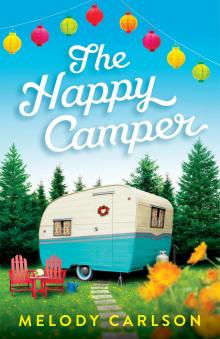 The Happy Camper
The Happy Camper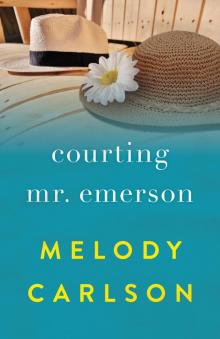 Courting Mr. Emerson
Courting Mr. Emerson The Christmas Swap
The Christmas Swap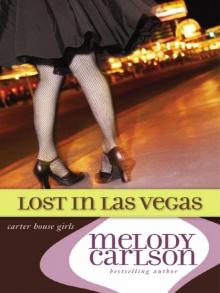 Lost in Las Vegas
Lost in Las Vegas The Christmas Shoppe
The Christmas Shoppe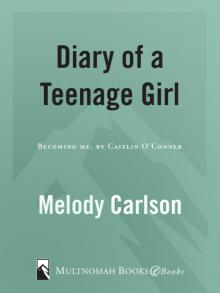 Becoming Me
Becoming Me Finding Alice
Finding Alice Payback
Payback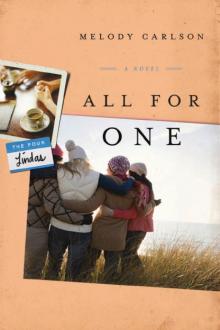 All for One
All for One Under a Summer Sky--A Savannah Romance
Under a Summer Sky--A Savannah Romance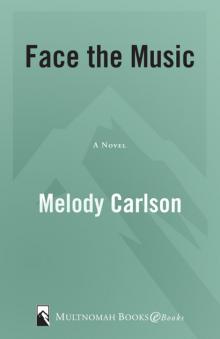 Face the Music
Face the Music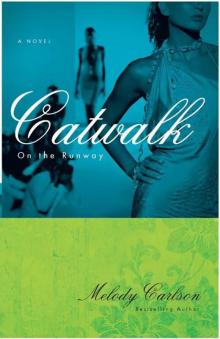 Catwalk
Catwalk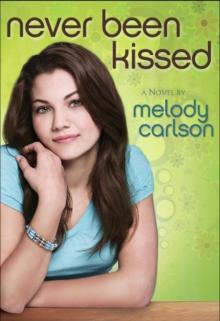 Never Been Kissed
Never Been Kissed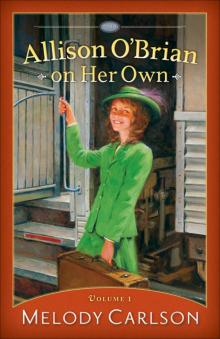 Allison O'Brian on Her Own
Allison O'Brian on Her Own An Irish Christmas
An Irish Christmas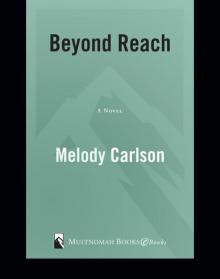 Beyond Reach
Beyond Reach Faded Denim: Color Me Trapped
Faded Denim: Color Me Trapped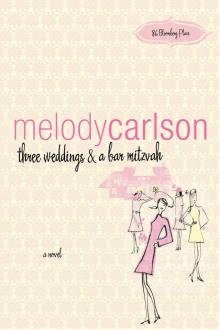 Three Weddings and a Bar Mitzvah
Three Weddings and a Bar Mitzvah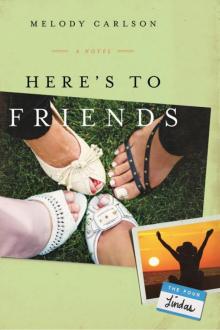 Here's to Friends
Here's to Friends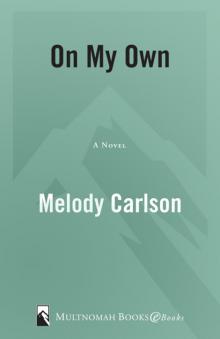 On My Own
On My Own River's Call
River's Call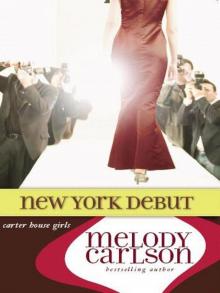 New York Debut
New York Debut Homeward
Homeward Love Finds You in Sisters, Oregon
Love Finds You in Sisters, Oregon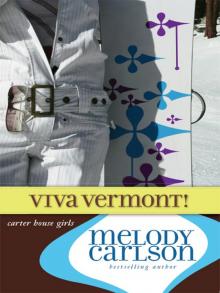 Viva Vermont!
Viva Vermont! Notes from a Spinning Planet—Ireland
Notes from a Spinning Planet—Ireland Harsh Pink with Bonus Content
Harsh Pink with Bonus Content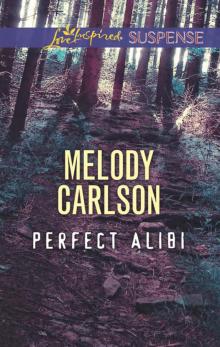 Perfect Alibi
Perfect Alibi The Christmas Pony
The Christmas Pony All Summer Long
All Summer Long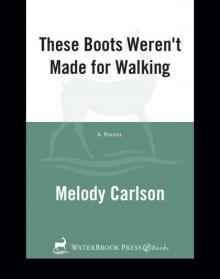 These Boots Weren't Made for Walking
These Boots Weren't Made for Walking Back Home Again
Back Home Again Torch Red: Color Me Torn with Bonus Content
Torch Red: Color Me Torn with Bonus Content Bitter Rose
Bitter Rose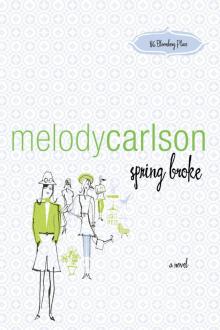 Spring Broke
Spring Broke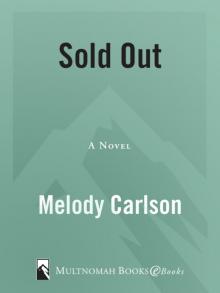 Sold Out
Sold Out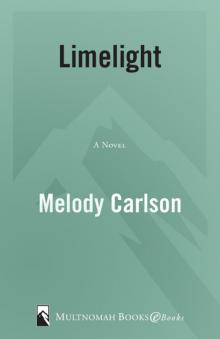 LimeLight
LimeLight Double Date
Double Date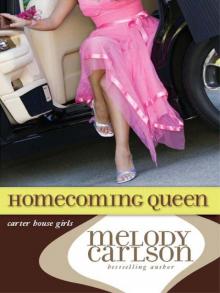 Homecoming Queen
Homecoming Queen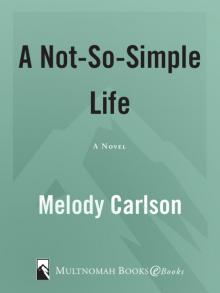 A Not-So-Simple Life
A Not-So-Simple Life My Name Is Chloe
My Name Is Chloe My Amish Boyfriend
My Amish Boyfriend Once Upon a Summertime
Once Upon a Summertime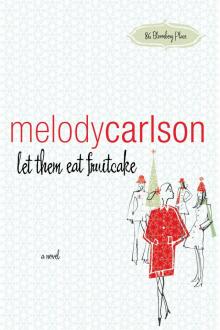 Let Them Eat Fruitcake
Let Them Eat Fruitcake Deep Green: Color Me Jealous with Bonus Content
Deep Green: Color Me Jealous with Bonus Content The Joy of Christmas
The Joy of Christmas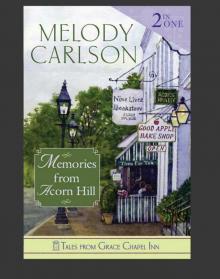 Memories from Acorn Hill
Memories from Acorn Hill Premiere
Premiere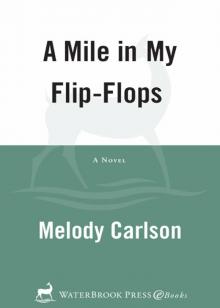 A Mile in My Flip-Flops
A Mile in My Flip-Flops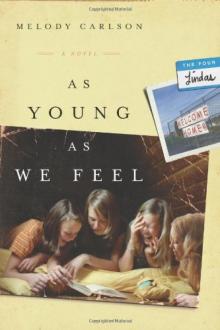 As Young As We Feel
As Young As We Feel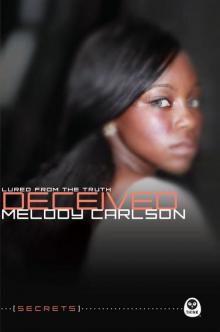 Deceived: Lured from the Truth (Secrets)
Deceived: Lured from the Truth (Secrets)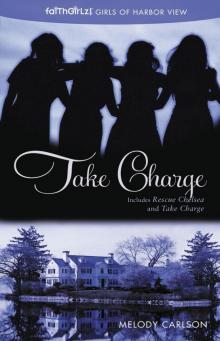 Take Charge
Take Charge Road Trip
Road Trip A Simple Song
A Simple Song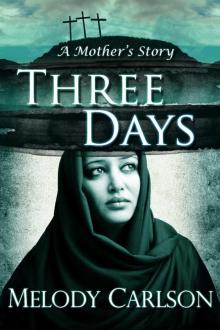 Three Days: A Mother's Story
Three Days: A Mother's Story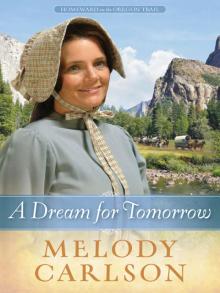 A Dream for Tomorrow
A Dream for Tomorrow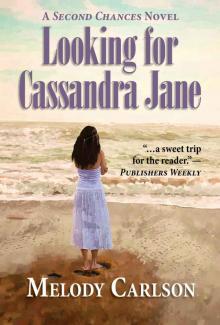 Looking for Cassandra Jane (The Second Chances Novels)
Looking for Cassandra Jane (The Second Chances Novels)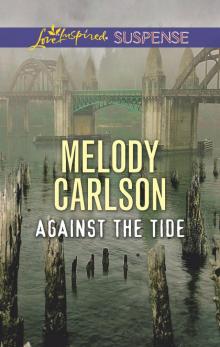 Against the Tide
Against the Tide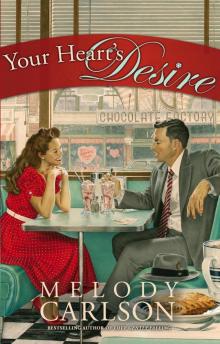 Your Heart's Desire
Your Heart's Desire The Christmas Blessing
The Christmas Blessing Love Gently Falling
Love Gently Falling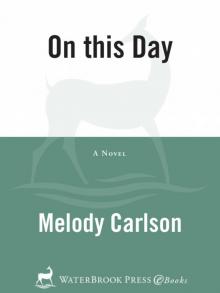 On This Day
On This Day The Christmas Joy Ride
The Christmas Joy Ride Ciao
Ciao The Christmas Bus
The Christmas Bus Blade Silver: Color Me Scarred
Blade Silver: Color Me Scarred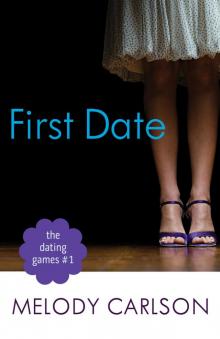 Dating Games #1
Dating Games #1 Double Take
Double Take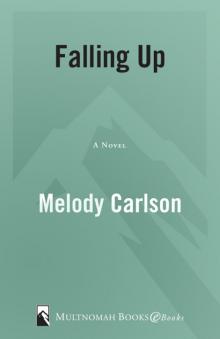 Falling Up
Falling Up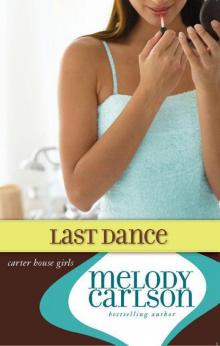 Last Dance
Last Dance Westward Hearts
Westward Hearts Glamour
Glamour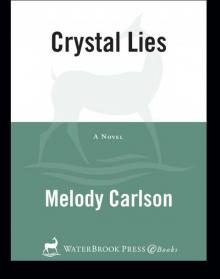 Crystal Lies
Crystal Lies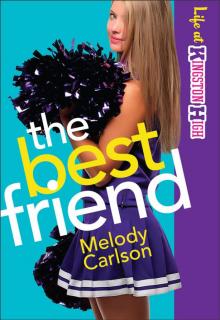 The Best Friend
The Best Friend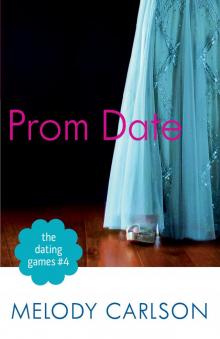 Prom Date
Prom Date The Christmas Angel Project
The Christmas Angel Project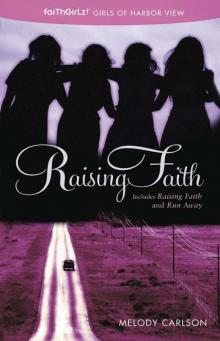 Raising Faith
Raising Faith The 'Naturals: Awakening (Episodes 1-4 -- Season 1) (The 'Naturals: Awakening Season One Boxset)
The 'Naturals: Awakening (Episodes 1-4 -- Season 1) (The 'Naturals: Awakening Season One Boxset)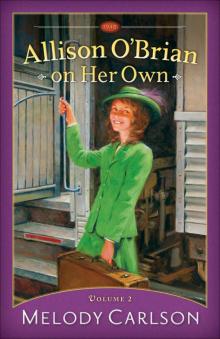 Allison O'Brian on Her Own, Volume 2
Allison O'Brian on Her Own, Volume 2 Notes from a Spinning Planet—Papua New Guinea
Notes from a Spinning Planet—Papua New Guinea Once Upon a Winter's Heart
Once Upon a Winter's Heart Damaged
Damaged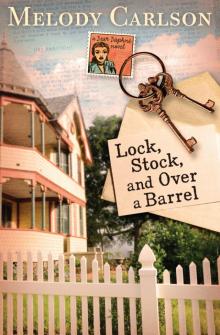 Lock, Stock, and Over a Barrel
Lock, Stock, and Over a Barrel Hometown Ties
Hometown Ties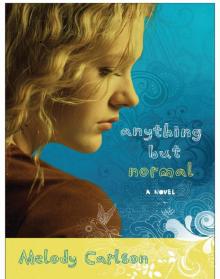 Anything but Normal
Anything but Normal Jerk Magnet, The (Life at Kingston High Book #1)
Jerk Magnet, The (Life at Kingston High Book #1)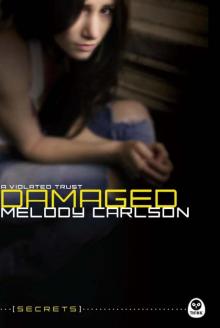 Damaged: A Violated Trust (Secrets)
Damaged: A Violated Trust (Secrets) Fool's Gold
Fool's Gold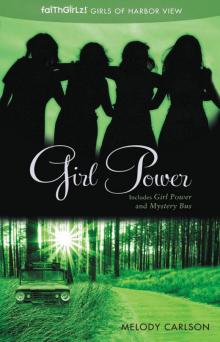 Girl Power
Girl Power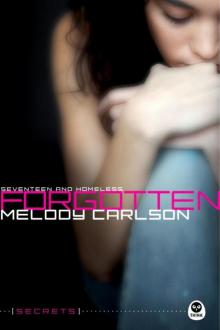 Forgotten: Seventeen and Homeless
Forgotten: Seventeen and Homeless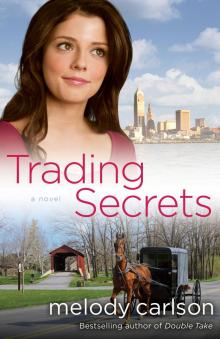 Trading Secrets
Trading Secrets Blood Sisters
Blood Sisters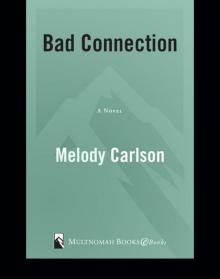 Bad Connection
Bad Connection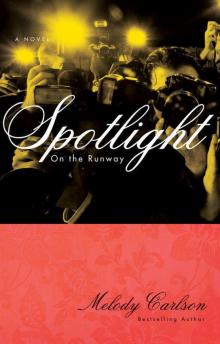 Spotlight
Spotlight A Simple Christmas Wish
A Simple Christmas Wish Love Finds You in Martha's Vineyard
Love Finds You in Martha's Vineyard Angels in the Snow
Angels in the Snow A Christmas by the Sea
A Christmas by the Sea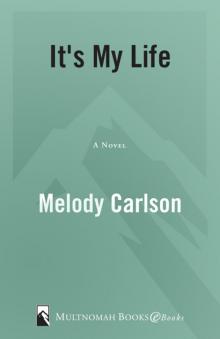 It's My Life
It's My Life Mixed Bags
Mixed Bags The Christmas Dog
The Christmas Dog Secret Admirer
Secret Admirer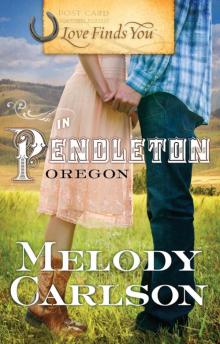 Love Finds You in Pendleton, Oregon
Love Finds You in Pendleton, Oregon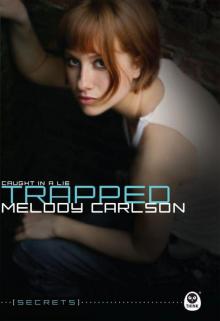 Trapped: Caught in a Lie (Secrets)
Trapped: Caught in a Lie (Secrets) The Gift of Christmas Present
The Gift of Christmas Present Hidden History
Hidden History Meant to Be
Meant to Be The Treasure of Christmas
The Treasure of Christmas Just Another Girl
Just Another Girl River's Song - The Inn at Shining Waters Series
River's Song - The Inn at Shining Waters Series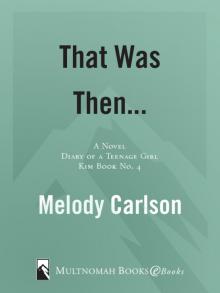 That Was Then...
That Was Then...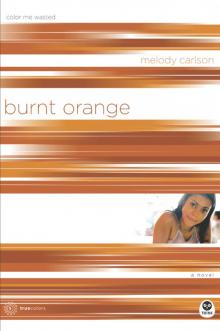 Burnt Orange
Burnt Orange Spring Breakdown
Spring Breakdown The Christmas Cat
The Christmas Cat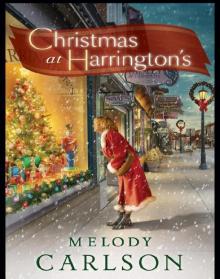 Christmas at Harrington's
Christmas at Harrington's